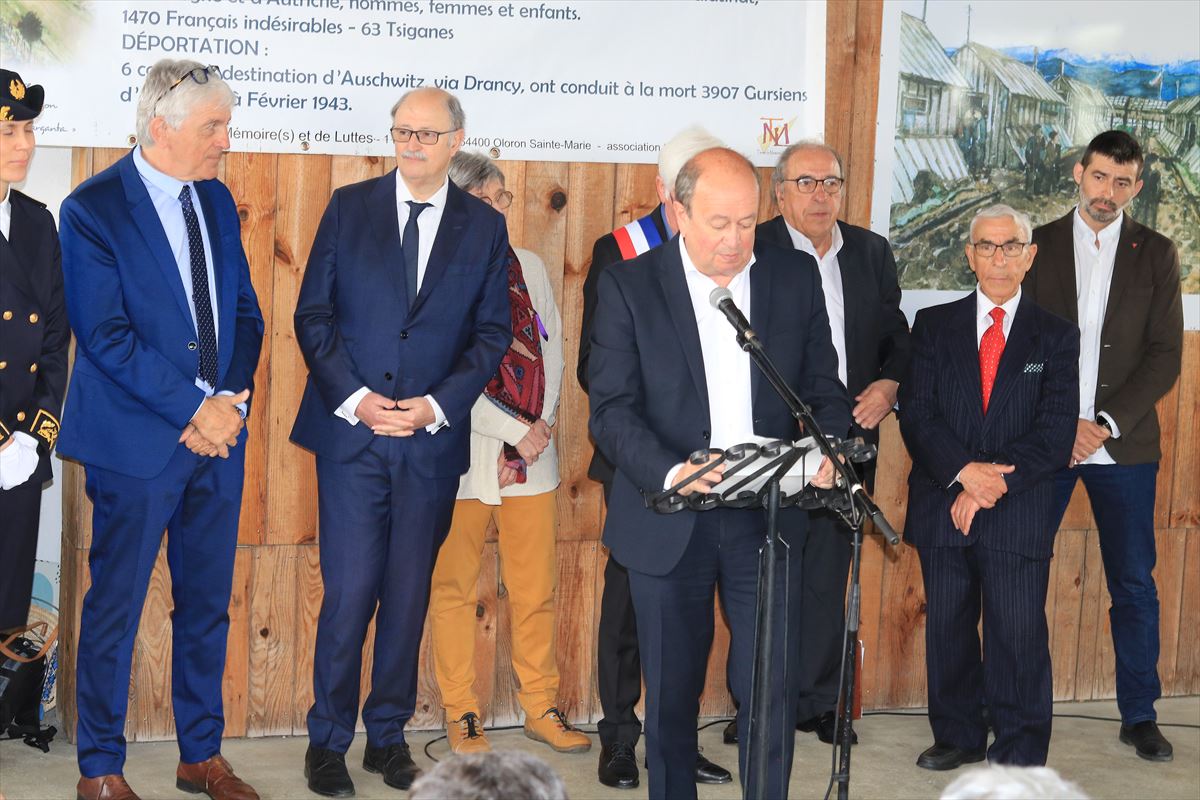This Sunday, the Basque government attended the tribute ceremony at the Nazi concentration camp Gurs, which opened 85 years ago in Bearne, in the area near Zuberoa, where almost 6,000 Basques suffered in appalling conditions between 1939 and 1946.
Like every year, the association ‘Terres de Mémoires et de Luttes’ organizes a tribute act to people interned in the Nazi Gurs concentration camp because of his membership of the Basque and Republican army or because of his political ideas against the dictatorships of Franco, Hitler and Mussolini.
The Nazi camp of Gurs, also known as camp of the basqueslocated near Oloron-Sainte-Marie in Bearno, in the muga with Zuberoa, remained in operation for seven years, from 1939 to 1946 and therein, almost 6000 Basques Between 1939 and 1946 they suffered in appalling conditions.
The commemoration of 85th anniversary of the opening of the Gurs camp has brought together in this enclave relatives of the people interned there, social and cultural organizations and representatives of the governments of New Aquitaine, Euskadi, Navarre and Aragon.

The Deputy Minister of Human Rights, Memory and Cooperation of the Basque Government, José Antonio Rodríguez Ranzattended the event, where he emphasized that “the victims of Gurs are a beacon for our memory.”
He also wanted to recognize the other victims of the Gurs, “regardless of their nationality, ethnicity or condition. They are victims of fascism, oppression and exclusion, and they are a beacon of our memory,” he said.
“Today we live in a particularly delicate situation with wars, serious violations of human rights, forced migrations, exile, exclusion and discrimination. Gurs challenges us and hopefully reaffirms our commitment to a democratic memory and a more just, humane and sustainable world,” it’s done.
The Gurs camp was the longest and most important camp in France and housed 64,000 people during that period. Of these, 27,300 were refugees from the Basque Country and Navarre. It also housed volunteers from the International Brigades and Spaniards who arrived between 1939 and 1940, at the end of the Civil War, as well as other victims of fascism whom the Nazi regime labeled as “undesirable”, such as Jews, Gypsies or homosexuals.
The association ‘Terres de Mémoires et de Luttes’ is the one that worked on the reconstruction of the barracks of the Nazi camp.
Source: EITB
I am Ida Scott, a journalist and content author with a passion for uncovering the truth. I have been writing professionally for Today Times Live since 2020 and specialize in political news. My career began when I was just 17; I had already developed a knack for research and an eye for detail which made me stand out from my peers.



